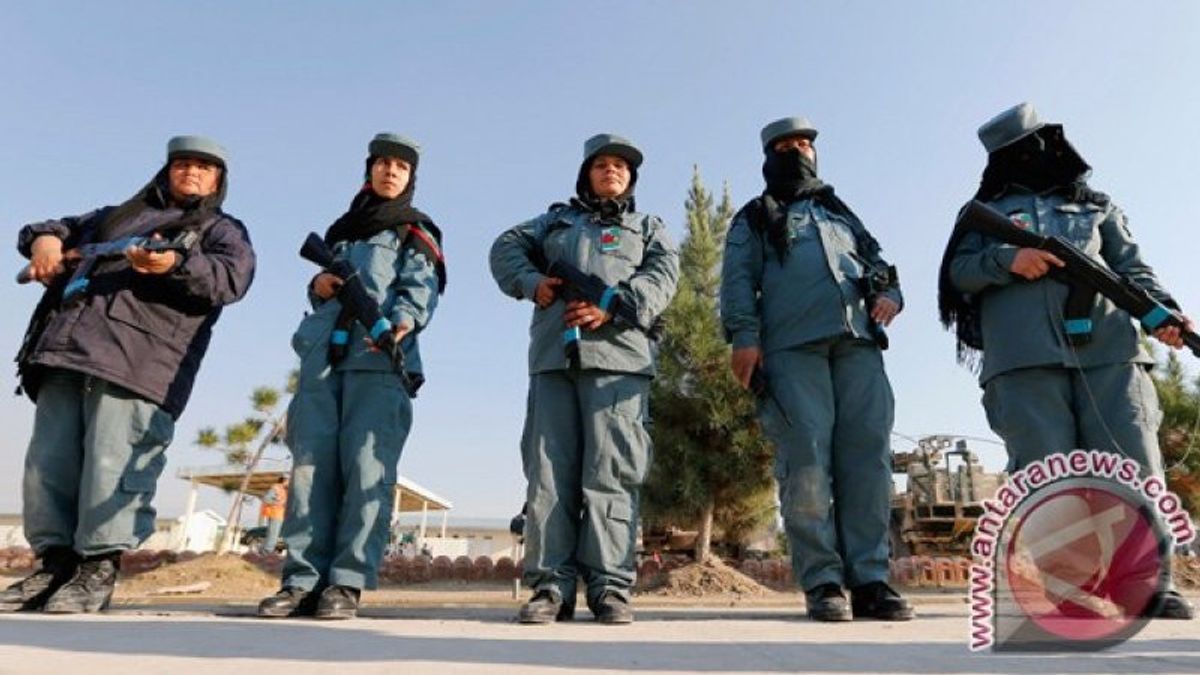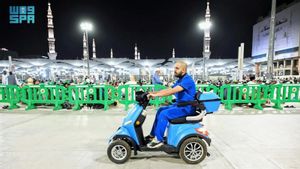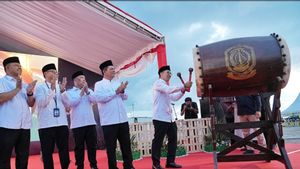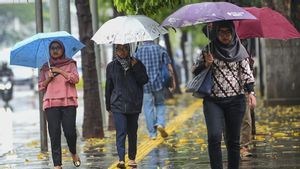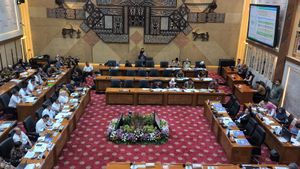JAKARTA - The last thing Khatera, 33, saw was three men on a motorbike attacking her, right after she finished her job at a police station in Ghazni province in central Afghanistan. The men fired at her body, even stabbing her eyes with knives. When he woke up in the hospital, it was all dark.
"I asked the doctor, why couldn't I see anything? They told me that my eye was still bandaged because of the wound. But at that time, I knew my eye had been removed," he said.
He and local authorities blamed Taliban militants for the attack and said the attackers acted on directions from his father, who fiercely opposed him working outside the home. The Taliban has denied involvement in the attack.
For Khatera, the attack not only caused her eyesight to disappear, she also lost the dream she had been fighting for, which was to have an independent career. He joined the Ghazni Police several months ago as an officer in the Crime Division.
"I wish I had served in the police force for at least a year. If this happened to me after that it would have been less painful. It happened too fast ... I have only been working and fulfilling my dream for three months," he told Reuters. Tuesday, November 10.
According to human rights activists, the attacks on Khatera, which use only one name, indicate a growing trend of intense and often violent reactions against women who work, especially in public roles. In the Khatera case, being a policeman also infuriated the Taliban.
Rights activists believe that the escalation in violence is a mix of conservative Afghan social norms, and the Taliban's growing bolder and gaining influence as the United States withdraws its troops from the country.
The Taliban are currently negotiating in Doha, Qatar, with the Afghan government to work on a peace deal. Many expect the Taliban to officially return to power, but the negotiation process has been slow. In addition, there has been an increase in fighting and attacks against prominent officials and women in Afghanistan.
"Although the situation of Afghan women in public roles is always in danger, the recent spike in violence across the country has made matters worse," said Samira Hamidi, campaigner for Amnesty International Afghanistan.
"Major strides regarding women's rights in Afghanistan over a decade should not fall victim to any peace deal with the Taliban."
Looking for motivesKhatera's dream as a child was to work outside the home. After years of unsuccessful attempts to convince her father, she found support from her husband. But her father, she said, did not give up against her daughter's wishes.
"Often times, when I go on duty, I see my father following me ... he starts contacting the Taliban in the area and asking them to prevent me from going to where I work," he said.
Khatera said her father gave a copy of her identity card to the Taliban, to prove that her daughter worked for the police. Ghazni police spokesman confirmed that they believed the Taliban were behind the attack and that Khatera's father had been detained. Reuters could not reach Khatera's father directly for comment.
A Taliban spokesman said the group was aware of the case, but it was a family matter and they were not involved. Khatera and her family, including her five children, are now hiding in Kabul, where she is recuperating and mourning the loss of her career.
He had trouble sleeping, jumped when he heard the sound of a motorbike. He was also forced to cut off contact with his extended family, including his mother, who blamed Khatera for his father's arrest. Khatera really hopes that a doctor abroad will somehow recover part of her vision.
"If possible, I can see again, I will continue my work and serve in the police again," he said.
Khatera added that she needed income to avoid poverty. "But the main reason is my desire to work outside the home."
The English, Chinese, Japanese, Arabic, and French versions are automatically generated by the AI. So there may still be inaccuracies in translating, please always see Indonesian as our main language. (system supported by DigitalSiber.id)
